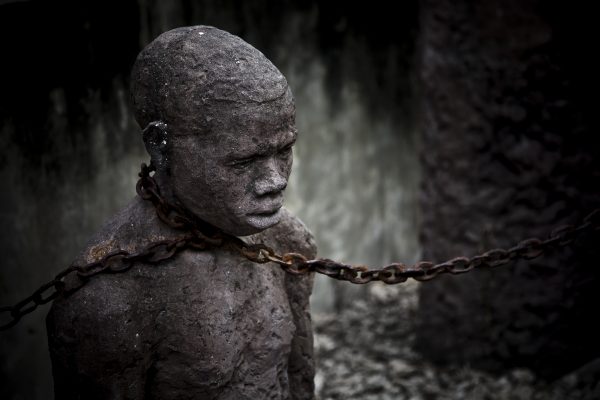Under his reign, Islamic territories expanded to 2.2 million square miles to Iran, Iraq, Syria, Egypt, Libya, Armenia, Eastern Anatolia, and the Eastern Roman Empire. Despite ruling over such a vast empire, he used to sleep on the bare ground, making his hands the pillow.
Under his reign, Islamic territories expanded to 2.2 million square miles to Iran, Iraq, Syria, Egypt, Libya, Armenia, Eastern Anatolia, and the Eastern Roman Empire. Despite ruling over such a vast empire, he used to sleep on the bare ground, making his hands the pillow.
Umar Ibn Khattab was the second caliph of the Rashidun Caliphate according to Sunni Muslims, and was born in Makkah. Umar belonged to one of the strongest tribes in Arabia, known as Quraish. He was a man of tall stature and used to do wrestling – his father raised him with harsh discipline as he was often made to look after cattle.
Umar was also one of the few literates of Arab society at that time. He was wise, eloquent, and well-spoken. Despite this, however, Umar used to have a negative perception of Islam during its early days.
While Muslims were going through adversities, it is said that Prophet Muhammad (sallalahu alayhi wassalam) used to supplicate to God to guide one of the two: Amr ibn Hisham or Umar ibn Khattab to Islam since they both were among the most powerful men of Arab. The Prophet’s supplication was answered for Umar ibn Khattab.
Gems from the Seerah: Leadership Qualities of Prophet Muhammed in Battle
Umar was one of the staunchest enemies of Islam at that time and even wanted to kill Prophet Muhammad (sallalahu alayhi wassalam). One day he took out his sword and rode his horse down the streets of Makkah where he encountered one of his friends, Nuaym ibn Abd Allah, who had secretly embraced Islam but didn’t let Umar know of it. He asked Umar about his intentions. As soon as Umar expressed his desire saying, “I am going to kill the man who disunited our people and made fool of us. I am going to kill him”, Nuaym advised Umar to look after the affairs of his house first and told Umar about his sister’s conversion to Islam.
Taken aback by the fact, Umar went straightforward to her house where he secretly heard his sister reciting the Holy Quran. In a chain of incidents, Umar first had a scuffle with his sister and brother-in-law which led to Umar accidentally hitting her sister. Realizing his fault, he asked his sister to give him the Holy Quran to read. His sister asked him to purify himself and proceed.
Touched by the verses of the Holy Quran; Umar embraced Islam on the same day. He went door to door in Makkah and announced his new identity. Umar became Muslim in 616 AD at the age of 27. At that time, the number of Muslims was only 39 and he became the 40th person to embrace Islam. Umar now turned into one of the staunchest supporters of Islam. It was only after the conversion of Umar that Muslims could pray openly without any fear in Makkah. He now committed himself fully to the cause of Islam.
He was sworn in as second Caliph of Muslims after the death of Abu Bakr according to Sunni traditions. Mahatma Gandhi is even quoted to have said, “I cannot help but present to you names of Abu Bakr And Umar. They were ruler of vast empire yet they lived a life of austerity.”¹
Umar ibn Khattab embraced severe asceticism and immense piety. Under his reign, Islamic territories expanded to 2.2 million square miles to Iran, Iraq, Syria, Egypt, Libya, Armenia, Eastern Anatolia, and the Eastern Roman Empire. Despite ruling over such a vast empire, he used to sleep on the bare ground, making his hands the pillow. Out of utter simplicity, he also wore clothes that used to have several patches. He never used to have two dishes on his table. At a time when his reign saw severe drought, he used to eat only oil and bread as he esteemed himself to empathize with the pain of people.
Memorandum of Religious Peacemaking: The Companions of the Prophet
It was during his reign that Jerusalem was conquered by Muslims. He embarked on the journey to take charge of the newly conquered city not with pomp and glory of his contingents but with a ride of mere servant and camel only. They both would ride the camel alternatively. As they were on the verge of reaching Jerusalem, it was his servant’s turn to ride the camel. Hesitant of watching his master entering the city on foot; he asked him to get on the camel yet he refused, implying that glory belongs to Allah only. He entered Jerusalem on foot to the shock of everyone witnessing this humility. Caliph Umar walked to the army wearing his modest threadbare clothes and took the charge of the city with his God-fearing approach.
He introduced many reforms in his time. He introduced police departments for the first time in history. He established courts of justice and punished unjust judges. He introduced a department for the investigation of complaints against the officers of the state.² He started several funds for the widows, orphans, and other underprivileged.³ He started accountability of the assets of the privileged. He is credited for the creation of the first official postal system in history. He devised the Lunar Hijri Calendar (the religious calendar of Muslims). He established the department of irrigation for the first time in Arab society as they used to face several water issues in the past.⁴
His governance became one of the most just to be ever witnessed in history. He was an expert jurist who got his epithet ‘Farooq’ – meaning the one distinguishing from right and wrong. Every citizen regardless of his race and creed was given their due right. He would inspect the streets of Madinah during the night. He would take special protection of law and order in the land. He was especially careful in the protection of minority rights. Their properties were under the protection of the state. They were guaranteed protection from exile and over-taxation. While collecting taxes from the protected minorities, it was complied with justice and fairness. He was the only ruler to admit that even if a dog die of hunger, he would bear the punishment for this.
Till his very last breath, he served justice. Some people suggested he declare his son as the next caliphate but he refused to do so as he felt it was the right of Muslims to elect their leader. He was stabbed while leading the morning prayers in Madina and died from his wounds three days later.
References
¹ MK Gandhi, Harijan (1937)
² Al- Buraey, Muhammad (2002), Administrative Development: An Islamic Perspective
³ Crone, Patricia (2005), Medival Islamic Political Thought, Edinburgh University Press
⁴ Shibli Nomani, Al Farooq (1991)





